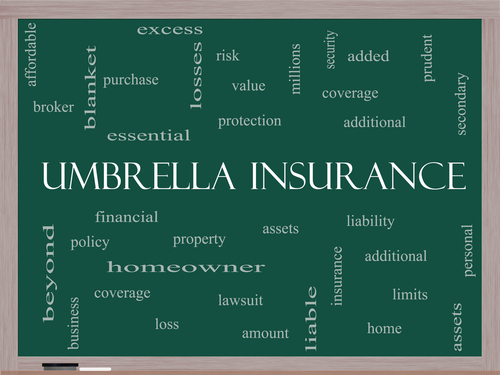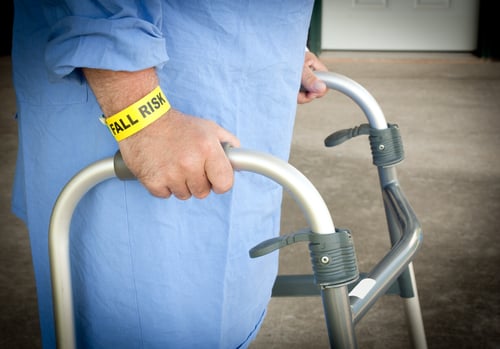No one disputes the need for insurance throughout our lives. Itis a purchase based on current and future needs. Like the umbrellaI take when I travel, it's tucked away – just in case I needit.
|When it comes to insurance, the real questions are: what kindsof insurance do you need and when should you purchase them? Yourgoal should be to get the best coverage that meets your needs atdifferent stages of life. Here are some of the types of insuranceyou should consider to help manage the unexpected “adventures”you'll encounter along the way.
||
The Teen Years
|Life Insurance – “Purchasing life insuranceshould be based on the need of the individuals to provide financialresources to others (dependents), should that individual die,” saysRandy DeLopst, CPCU, president of Taurus Insurance & RiskManagement Consulting, LLC, “and dependent children don't fit thiscriteria.” Even though burial costs could be an issue, DeLopst saysfamilies who pay out of pocket still come out ahead in the long runbecause the costs will be offset by education and living expensesno longer needed to raise a teen.
|Health Insurance – Definitely needed, butusually provided as part of the parents' insurance policies.
|Business Insurance – DeLopst says parentsshould have a personal umbrella policy that provides coverage forincidental business activities a teenager may conduct such asbabysitting or being a nanny for the summer, a lawn care or snowremoval business, newspaper delivery (they are independentcontractors), and playing in a band for income, etc.
|Auto Insurance – This is extremely important.Most parents add their children to a family policy, “but don't tryto hide teenage drivers,” cautions claims consultant and authorChris Tidball. “When children turn 18, don't hesitate to put carssolely in their name and put lower limit policies on thosecars.”
||20 Something…
|“People in this age group find themselves invincible,” saysTidball. “This can be a very costly mistake if faced with a seriousillness that can force people into bankruptcy.” Once you've movedout onto your own, there are several different types of insuranceyou should consider.
|Life Insurance – How much to purchase dependson if you need to provide for a spouse or significant other andchildren. There may also be student loan debt, credit cards, or amortgage to consider. DeLopst recommends going for insurance thatprovides high limits and a lower premium. Permanent Whole Life andVariable Life insurance that have savings/investment features areprobably not necessary at this stage.
|Health Insurance – If coverage is not availablethrough an employer, consider purchasing individual/family healthinsurance with a substantial deductible ($2500-5000) to helpcontrol the cost.
|
Disability Insurance – DeLopst says ifdisability insurance is not available from an employer, considerpurchasing individual disability insurance, since individuals arestatistically more likely to be disabled than to die.
|Homeowners/Renters – Insurance should be basedon living arrangements and home value. Personal watercraft (boats,jet skis and wave runners) and personal recreational vehicle(all-terrain vehicles, snowmobiles, dirt bikes, Segways and othermotorized vehicles) should be considered for vehicles used awayfrom home.
|
Auto Insurance – Several different types ofinsurance fall under this category:
- Comprehensive – Fairly inexpensive and recommended for mostvehicles.
- Collision – More expensive and based upon the cash on hand toreplace a vehicle coupled with the actual cash value of thecar.
- Under Insured/Uninsured Motorist – This is critical if anaccident is caused by an uninsured or under insured motorist. Don'tskimp here, cautions Tidball. “Get as much as your liability limits[allow] and stack the policy if you have multiple vehicles.”
- Personal Insurance Protection/MedPay – PIP is mandatory in somestates and MedPay is optional in all. “This is good first-partycoverage to have, especially if you don't have health insurance orhave a health deductible to meet,” says Tidball.
- Towing/Rental/Glass – All are fairly low cost types ofinsurance that can be helpful when needed.
Personal Umbrella Liability Insurance – Nolonger is a $1 million umbrella policy sufficient. “Even if theindividual does not have personal wealth or assets to protect atthis young age, they need to protect their future earningpotential,” explains DeLopst. “Individuals cannot dischargeliability awards through bankruptcy. A serious automobile accidentthat injures others can financially haunt the negligent driver forthe rest of their life.”
|
For business owners, DeLopst says that a number of employeebenefit plans should be considered: group life, group health, groupdisability, and group accidental death, dismemberment ordisability, as well as dental and vision. Small to medium-sizedbusinesses should consider key man life insurance and key mandisability insurance, in case one of the executives dies or isinjured.
|Some other types of property/liability insurance to for businessowners to consider include: commercial general liability, businessautomobile, environmental, worker's compensation, crime,cybercrime, employment practices, professional liability, directors& officers liability, and kidnap & ransom.
||
Welcome to your 30s
|By this time most individuals have begun to accrue some assetsand have children. It's important that you review any coveragepurchased in your 20s to make sure it still meets your currentneeds. If you didn't purchase an umbrella policy in your 20s, youshould definitely consider it in your 30s.
|Professionals will need professional liability insurance andbusiness owners will need a general liability policy in addition tohome, health and life insurance.
|Life Insurance – Tidball recommends at leasttwice your salary in coverage since it should provide 1-2 years ofyour salary for a spouse should something happen. Policy limitsshould be reviewed, as well as premium costs. DeLopst says this mayalso be the time to consider some type of permanent whole life orvariable life insurance product.
|
Long-term Care – Even though you may not needlong-term care now, DeLopst says it is better to purchase this typeof insurance sooner rather than later. “Long-term care insuranceinvolves the accumulation of funds over a long period of time inorder to build up an amount adequate to pay for nursing home orin-home care services that may be needed later in life.“
||
The Busy 40s
|By the time you hit your 40s, you are established financially,possibly with a growing family, and at the peak of your earningopportunities. Homeowners, life and health insurance continue to bevery important, but growing wiser also means you're aging. Estateplanning comes into play now. DeLopst explains that life insurancecan be used to structure an effective estate plan and provide thefunds necessary to pay estate taxes, probate costs and otherexpenses.
||
Your 50s
|At this stage, your kids should be leaving home. Tidball adviseshaving a discussion with them on the importance of basic insuranceand then re-evaluating your own situation. Now is also the time tolook into secondary health insurance, especially since somepolicies associated with Obamacare don't provide the most completecoverage.
|If you haven't purchased life insurance yet, be prepared tospend some serious money at this age. It will also be one of thelast opportunities you have to purchase life insurance.
||
60s and beyond
|Your 60s bring retirement (or semi-retirement), as well as someof the challenges of aging. “In addition to all of the coverage youhave accrued to date, it is now time to consider long-term care inthe event that you go into a nursing home, which can be veryexpensive,” says Tidball. The need for long-term disability maydecrease at this stage, and all insurance policies should bereviewed to make sure they still meet your current needs andlifestyle.
Want to continue reading?
Become a Free PropertyCasualty360 Digital Reader
Your access to unlimited PropertyCasualty360 content isn’t changing.
Once you are an ALM digital member, you’ll receive:
- All PropertyCasualty360.com news coverage, best practices, and in-depth analysis.
- Educational webcasts, resources from industry leaders, and informative newsletters.
- Other award-winning websites including BenefitsPRO.com and ThinkAdvisor.com.
Already have an account? Sign In
© 2024 ALM Global, LLC, All Rights Reserved. Request academic re-use from www.copyright.com. All other uses, submit a request to [email protected]. For more information visit Asset & Logo Licensing.








